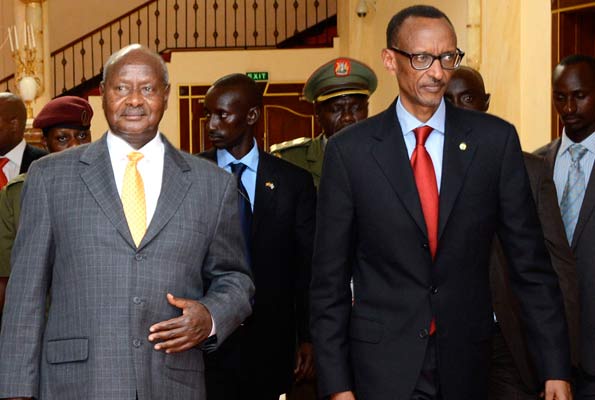By Godwin Agaba
Over 1, 600 bodies have so far fallen in the expansive Democratic Republic of Congo (DRC) to an outbreak of the viral Ebola, the deadly hemorrhagic fever that has ravaged the Eastern part of the country for two years and is now declared an international health emergency by World Health Organisation (WHO).
The epicenter of the epidemic is in the provinces of Ituri and North Kivu, with a spillover in Goma, a city of a million people.
Efforts by the Congolese government and United Nations (UN) have borne some fruit. The epidemic could have been worse but still, concern is growing if it will ever be eradicated completely, and when? Thousands dead is too much for a region concurrently ravaged by war. Attacks by regional terrorist elements such as ADF have hampered efforts in the ebola fight with medics attacked and killed, thus pushing off interventions.
In June, the outbreak spilled over into Uganda, with cases reported in the North Western-lying Arua and the Western-lying Kasese districts. The Kasese case was of a five-year-old boy and his grandmother who later died of the disease.
Uganda was able to contain the outbreak swiftly although the health ministry has stated that it is not eager to declare the country free of ebola, possibly to keep up vigilance.
Uganda previously defeated other outbreaks in a short time thanks to experience gathered since an outbreak in the North of the country killed hundreds including Dr. Lukwiya who was superintendent of Lacor hospital in Gulu. There was another outbreak in 2007 and other unconfirmed cases that tested the community’s vigilance.
Uganda also helped contain an outbreak in West Africa between 2014 and 2016 where its teams of doctors won worldwide acclaim.
Uganda has, therefore, gathered practical experience in combating Ebola which DRC critically needs. Other than issuing advisories to the populace to be on the lookout for suspected cases, Ugandan authorities have instituted tight screening regimes at the border points leading from Congo.
On the part of Rwanda, there has never been a case reported. This week, the authorities were reported to have shut the border with Congo as a precaution although the country’s Minister of Health, Dr. Diane Gashumba, on Thursday (August 1) later released a statement stating that the borders were still open.
“The Ministry of Health confirms that Rwanda’s borders with the Democratic Republic of Congo (DRC) are open, following traffic slow-down this morning as measures were put in place to reinforce screening procedures and public safety at entry points,” said Dr. Gashumba, who signed off the statement as “Dr. Gahumba”.
She then mentioned detection, preventive and treatment measures instituted since a case of Ebola was confirmed in Goma, a city close to the Rwanda border. An Ebola treatment center and 15 isolation units have been set up while 3000 health workers have been vaccinated as a precaution.
The statement also said Rwanda had trained 23, 957 people “including doctors, nurses, hospital staff, community health workers, religious leaders, red cross volunteers and security personnel.” Special ambulances are in place.
In light of the above, Rwanda is ready, Uganda is ready but DR Congo is not! Why can’t the two neighbor countries put boots on the ground and help bring a tortuous outbreak to an end? For as long as the Congolese are still battling the problem unsuccessfully in an area where people and wildlife crisscross through open and closed routes in the region, it wouldn’t be a case of stretched pessimism to fear that eventually Ebola will spill over into the region. Closing borders doesn’t seem to offer foolproof protection or assurance. It only sends a wrong signal to the people that they have been abandoned to their early grave.
Ugandans and Rwandans forged a bond with Congo when in 1996 they helped depose Dictator Mobutu Sese Seko and install Laurent Kabila in power. They are, in a way, central and party to Congo’s stability with the volatility in the East of the huge country a liability to their own fortunes.
The same way they couldn’t take chances when armed groups threatened their stability while lurking in the bushes of Congo is how they should look at the threat posed by a disease that is plunging the region into a state of uncertainty, with a likelihood of insurgent groups using fear of the disease as a weapon to entrench themselves. It is a security scare!
The Government of Congo is overwhelmed with things to do and may never get to the bottom of the problem. As a security measure, the two countries should form a tripartite arrangement (with the host country) and manage the Ebola scourge for their own good and the good of the international community. They are the first port of call as regional powerhouses and old time allies of the Congolese people at their hour of need.
Ebola is a scary menace; it has a high fatality rate, kills swiftly within a few days and comes with incomparable pain and wasting away of victims. No wonder the Rwandan minister lost her nerve and misspelled her name on the statement!
